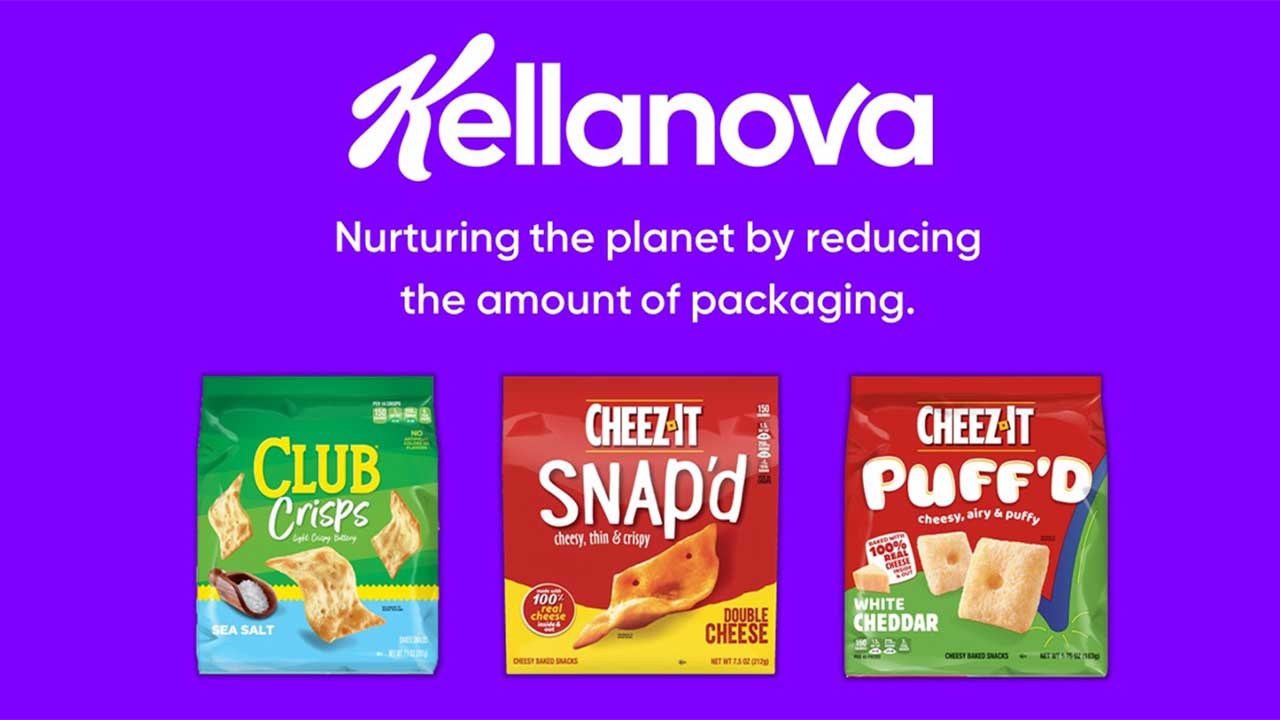Kellanova unveils reduced plastic packaging for its snack brands
The reduction of plastic is almost the same weight as 140,000 NFL footballs

Kellanova has reduced the amount of plastic used in packaging (compared to the same volume last year) of its three brands Cheez-It Snap'd, Cheez-It Puff'd and Club Crisps while maintaining the same amount of food in each package.
The packaging designs were optimized, reducing the total material weight for these three foods by 672,000 pounds, reducing 124,000 pounds of plastic and reducing 548,000 pounds of corrugated cardboard used for shipping cases (annually). This reduction of plastic is almost the same weight as 140,000 NFL footballs.
This packaging design is in line with Kellanova Better Days Promise commitment to work towards packaging that is 100 percent reusable, recyclable or compostable by the end of 2030. Additionally, as a signatory to the Ellen MacArthur Foundation New Plastics Economy Pledge, Kellanova has a goal to reduce virgin plastic by 5 percent.
Kellanova's framework to ensure packaging is innovative and sustainable involves four approaches:
- Reduce packaging across the portfolio
- Remove certain plastic items and packaging materials
- Redesign packaging to be recyclable or compostable
- Increase recycling
Janelle Meyers, chief sustainability officer, said: ‘Kellanova (formerly Kellogg Company) envisions a day where the planet thrives. Three popular snack brands, Cheez-It Snap'd, Cheez-It Puff'd and Club Crisps, have reduced the amount of plastic used in their packaging, while maintaining the same amount of delicious food in each package.’
David Lestage, VP chief R&D officer, added: ‘At just 12 percent of our total packaging footprint, Kellanova has one of the smallest plastic packaging footprints among peer companies. Yet we remain committed to working with new and existing partners, customers and other innovators to identify packaging solutions, such as the plastic reduction in Cheez-It Snap'd, Cheez-It Puff'd and Club Crisps, that protect and enhance our foods, while caring for the planet.’
Stay up to date
Subscribe to the free Label News newsletter and receive the latest content every week. We'll never share your email address.

